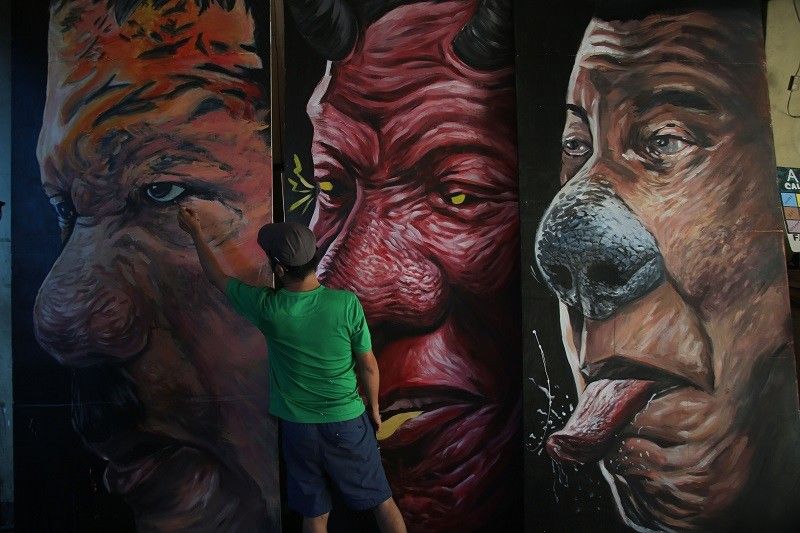Commentary: Reclaiming human rights

Human Rights Day provided a good opportunity to reflect on how we have fared on our commitments since the Philippines signed the Universal Declaration of Human Rights 70 years ago. The rights enshrined in the 1987 Constitution, the mechanisms put in place to curtail power and the numerous human rights treaties we have ratified since then, the Philippines seems to be doing well.
The Rome Statute is my favorite among these treaties. Coming from a country where impunity is the norm, the purpose of the treaty to hold powerful people criminally accountable before an international tribunal appealed to me. It added a further check on our existing institutions.
It is unfortunate how this piece of document has now been cheapened and dismissed as a political tool, by people who themselves are motivated by political ambition.
Modes of attack
Since President Rodrigo Duterte came to power, we have seen different ways human rights have been under attack. The Philippine war on drugs has already claimed thousands of civilian lives. Less than two weeks ago, the killers of Kian delos Santos were convicted for his murder. Unfortunately, Kian’s story is not the norm. At present, most drug-related cases remain unsolved, especially killings committed by riding-in-tandems.
The second mode of attack is verbal. Duterte has zealously incited, criticized, insulted, and ridiculed persons and institutions that oppose his policies. His rhetoric over the past two years ranged from statements approving shoot-to-kill orders, increasing casualties of the drug war, and encouraging the public to kill criminals through promises of bounty, to encouraging human rights defenders to take Valium and describing former US President Barack Obama and former UN High Commissioner for Human Rights Zeid Raad Al Hussein as “son of a bitch”.
These statements do not occur in a vacuum, even if meant as a joke. They shape the public’s receptivity to government policies, including its anti-drug campaign. Trivializing killings and encouraging people to open fire (whether meant as a joke or not) is not a problem of interpretation on the part of the public if taken seriously. When the person making those statements is the leader of this country, that becomes his problem of responsibility.
No one knows the power of citizen engagement best than this administration; it has effectively weaponized social media and capitalized on media communications to curtail dissent through hyperactivity of rhetoric. Apart from mild censorship and occasional threats to press freedom, exemplified by Rappler’s legal battles or the bullying of journalist Pia Ranada, dissent is counteracted not by silence but by noise.
This brand of rhetoric has influenced the high number of deaths of human rights defenders under the Duterte administration. Just recently, Benjamin Ramos was shot dead in Negros Occidental by two persons riding in tandem. Ramos defended the rights of political prisoners, farmers and peasants. Labor rights activist Butch Ramos, who, before his demise, had also helped families of victims of the drug-related killings, met the same fate. What’s worrying here is the blatant way they were shot— out in the open, in broad daylight, for everyone to see. It gives the impression of confidence over impunity.
This modus operandi, of persons riding in tandem, chillingly resembles the fact pattern of vigilante killings arising from the drug war. The similarities cannot be discounted, and their pervasiveness over the past two years cannot be dismissed as mere coincidence.
Celebrating the CHR
Set against this backdrop is the work of the Commission on Human Rights, the constitutional body mandated to investigate human rights abuses in the country. The duty to investigate is an awesome responsibility. As the records of the constitutional commission deliberations would show, the framers of the 1987 Constitution were bent on establishing the CHR. Its greatest protective device is the provision on automatic appropriation, requiring the automatic and regular release of funds.
However, the Constitution failed to provide other structural arrangements that would enable the commission to perform its mandate. For instance, despite providing for automatic appropriation, there is no guarantee under the Constitution as to the amount. The move by the lower house of Congress last year to grant the CHR a P1,000 budget is a good illustration of how this can undermine the independence and impact of the office.
Another issue is its lack of prosecutorial function. If the commission is meant to be a check on the different branches of government, including the executive, it is strange that the results of its investigation must be referred to a branch of that government (i.e., Department of Justice) for purposes of prosecution. Notably, the DOJ prosecutor is free to disregard the CHR’s findings and recommendation. This means that the CHR investigation may well be for nothing, in which case, the accountability effort reaches a dead end. Fortunately, the Office of the Ombudsman is another option, although the limits of this arrangement have yet to be exposed by an actual case.
Moving forward
The Philippines has much to celebrate in terms of drawing up a framework and putting systems in place to ensure human rights protection and accountability. However, reality presents a grimmer picture. The past two years have shown us how these systems can easily be manipulated to violate, instead of protecting, our rights. The most sophisticated legal devices cannot stop state abuses, only the Filipino people can.
Jenny Domino is the fellow on democracy and human rights at Stratbase ADR Institute. She is a graduate of Harvard Law School and the University of the Philippines College of Law.
- Latest




























